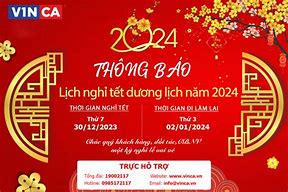The Vietnam National University - Hanoi (VNU) has been ranked 187th in the Quacquarelli Symonds (QS) World University Rankings: Asia 2024. (Photo: vnu.edu.vn)
Quá trình hình thành và phát triển
Đại học giáo dục quốc lập Đài Trung được thành lập vào năm 1899 tại Đền Khổng ở Changhwa và chuyển đến địa điểm hiện tại vào năm 1923.
Năm 2000, Chủ tịch thứ ba Lai Ching-Piao tích cực mở rộng khuôn viên thứ hai, điều chỉnh chương trình giảng dạy để trau dồi khả năng đa năng của sinh viên và chính thức nâng cấp trường thành Đại học Giáo dục Quốc lập Đài Trung.
Trong khi đó, Chủ tịch Lai và các đồng nghiệp đã nhắm vào mục tiêu bước lên phía trước và đã trải qua quá trình chuyển đổi tiếp theo vào năm 2005.
Đại học giáo dục quốc lập Đài Trung tọa lạc tại số 140, Đường Minsheng, Quận Tây, Thành phố Đài Trung, Đài Loan.Trường nằm ở phía nam thành phố Đài Trung với diện tích khoảng 53 ha.
Không chỉ vậy, trường Đại học giáo dục quốc lập Đài Trung còn thừa hưởng nhiều tiện ích từ một thành phố sầm uất, đã và đang thu hút lượng lớn khách du lịch.Theo đó, nhiều địa điểm du lịch tại Đài Trung làm mê hoặc lòng người như Rừng hoa oải hương lãng mạn, Hồ Nhật Nguyệt, Văn Võ Miếu, Chợ Đêm Phụng Giáp (Fengjia)…
Thư viện: Thư viện trường là một tòa nhà bảy tầng và một tầng hầm với 2.000 chỗ đọc và nằm ở trung tâm của Đại học giáo dục quốc lập Đài Trung. Thư viện này được lên kế hoạch lưu trữ tổng cộng 1,7 triệu cuốn sách.
Ký túc xá: Trường Đại học giáo dục quốc lập Đài Trung gồm 2 tòa ký túc xá dành riêng cho sinh viên nam và sinh viên nữ. Các ký túc xá đều được trang bị và thiết kế hiện đại, giúp sinh viên trong và ngoài nước có môi trường sống tốt nhất.
Sân chơi giải trí: Ngoài sân thể thao, Đại học giáo dục quốc lập Đài Trung còn có Hội trường Vòng tròn – tòa nhà đa chức năng đáp ứng mọi nhu cầu cuộc sống hàng ngày từ giáo sư và sinh viên, nơi tổ chức các hoạt động ngoại khóa và văn nghệ.
Nguyên tắc chỉ đạo của Đại học giáo dục quốc lập Đài Trung là Quản lý sáng tạo, Tìm kiếm sự xuất sắc và Phát triển bền vững. Trường nhấn mạnh việc giảng dạy lấy học sinh làm trung tâm, nhấn mạnh cả giáo dục khoa học và nhân văn, và ủng hộ sự chuyên nghiệp với tư duy phản biện.
Trải qua nhiều năm phát triển và đổi mới, Đại học giáo dục quốc lập Đài Trung đã gặt hái được nhiều thành tựu trong giáo dục:
Trường có hai kỳ nhập học chính vào tháng 2 và tháng 9 hàng năm
Hiện tại, Đại học giáo dục quốc lập Đài Trung bao gồm bốn trường cơ sở: Đại học Giáo dục, Cao đẳng Giáo dục, Cao đẳng Quản lý, Cao đẳng Khoa học và Cao đẳng Nhân văn, cung cấp các chương trình Cử nhân, Thạc sĩ và Tiến sĩ tại 20 khoa và viện sau đại học.
VNU President Le Quan attended the signing ceremony and delivered a speech.
According to the agreement, from 2025, VNU US and NYCU are to train bachelors in Semiconductor Technology in the form of 2+2 joint training, including 2 years of study at VNU, Vietnam and 2 years studying in Taiwan (China). Graduates will be awarded NYCU bachelor's degrees and have the opportunity to be employed by TSMC, Micron corporations, etc.
Speaking at the ceremony, VNU President Le Quan said that, as a leading scientific research and training centre, VNU has proactively built and implemented the Science, Technology and Innovation Strategy for the 2021 - 2030 period to orient the development of science and technology to a new level in the coming times as well as to make a breakthrough to develop VNU into a smart, innovative university.
Conclusion No. 64-KL/TW, made at the eighth plenum of the 13th Party Central Committee on October 18, 2023, set the target of training from 50,000 to 100,000 high-quality bachelors for semiconductor chip industry by 2030. In recent years, VNU has proactively, actively and flexibly built plans and organized the effective implementation of specific solutions to develop new technology industries, including semiconductor technology. VNU President Le Quan believed that, with its available potentials, along with promoting cooperation with international partners including NYCU, VNU would create a breakthrough in the training of semiconductor human resources.
VNU President Le Quan said that VNU would facilitate policy and financial mechanisms to support its members to develop cooperation in semiconductor technology. He also hoped that, in the coming times, NYCU would support VNU US in training lecturers and assist the University in developing appropriate programs and textbooks for the study of semiconductor technology. In addition, he believed that the diversification of joint training types between the VNU US and NYCU, along with the participation of Taiwanese businesses, would bring efficiency in training high quality human resources for the semiconductor industry.
NYCU President Chi-Hung Lin highly appreciated the results achieved by the international joint Master’s training program in Semiconductor Technology conducted at VNU US with the degree awarded by NYCU. The signing ceremony of the cooperation agreement in training bachelors in Semiconductor Technology demonstrates the determination of both sides to meet the needs of developing high-quality human resources for the semiconductor industry and semiconductor chip manufacturing, especially in Vietnam – a developing country with many talented young human resources.
Based on the results achieved in the recent cooperation, VNU US Rector Vu Hoang Linh remarked that the two units still had a lot of potential to be exploited in the future. He proposed that the two sides finalize plans for a joint undergraduate program in Semiconductor Technology to meet the great demand for high-quality workforce in Vietnam, Taiwan and around the world. VNU US and NYCU will also further strengthen staff and student exchange activities as well as promote cooperation with Taiwanese educational, research and business organizations.




